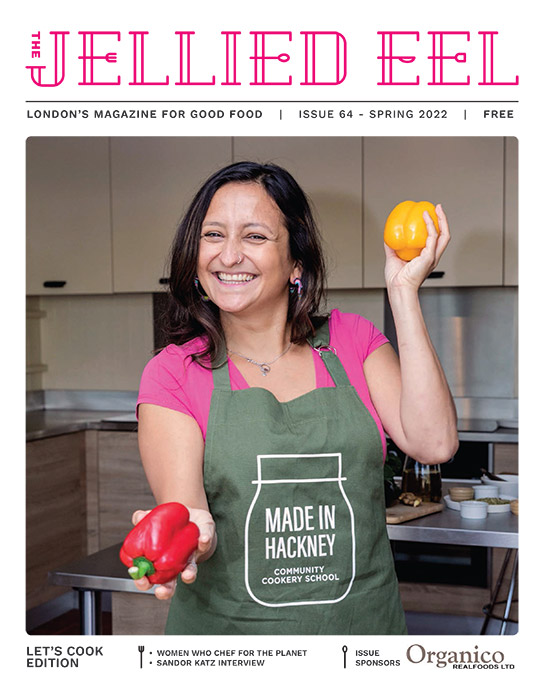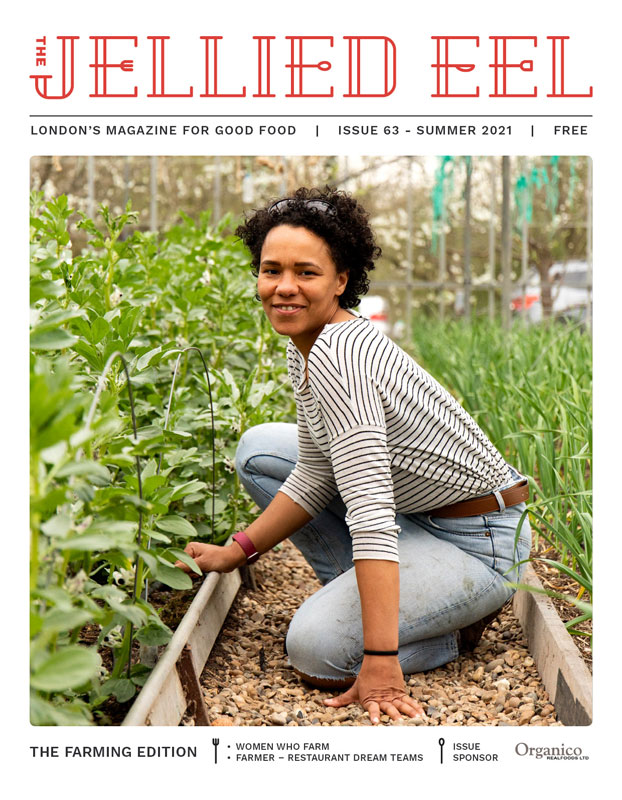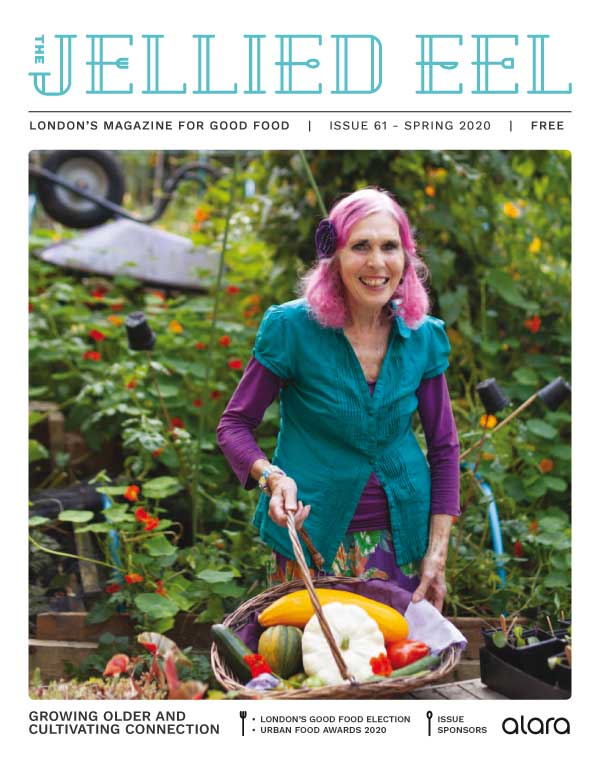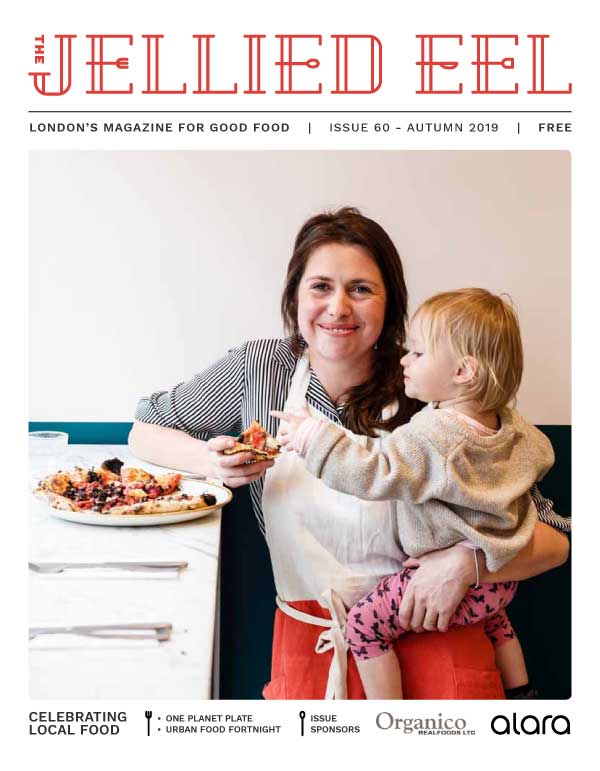Jellied Eel
Jellied Eel Magazine: A goodbye (for now!) and reflections from Sustain’s Chief Executive and long-time supporter of the ‘Eel, Kath Dalmeny.




Firstly, thank you for visiting the Jellied Eel online magazine! You may have noticed we’ve been a bit quiet recently, so we wanted to share an exciting and important update with you.
The 'Eel has a special place in our hearts, so it’s hard to break the news we’re putting the mag and website on hold, so we can focus our work on supporting London's community food enterprises. Find out more about this new direction here.
We hope you continue to enjoy reading our previous articles, blogs and stories which celebrate London’s good food scene and the incredible people, organisations and projects that make it what it is. And remember, you can now join London Food Link for free and support the enterprises providing affordable food and support to people struggling to make ends meet.
Read on for this special note from Kath Dalmeny as she reflects on the magazine and the difference we can make together.
We have loved Jellied Eel. The conversations and London Food Link framework that held it have been deeply appreciated and have fuelled a plethora of good things over the past 21 years, not least a sense of shared purpose in London to make food better, and the platform on which to raise the profile of the pioneers and good ideas to improve our city’s food system, as well as the lives of Londoners.
As I write, I’ve got issue number 1 of Jellied Eel on my desk, dated Summer 2002. For me, it represents a time when there wasn’t anything coordinated around food and farming across London. No Capital Growth promoting community food growing across London (memorably, my pal Julie Brown of Growing Communities needing to stand on the pedals of her bicycle to look over walls at land she wanted to turn into a Patchwork Farm but had no access to). No Mayoral Food Tsar to nag landowners to make land available for food growing. No discussion forum between boroughs about good food policy. No Good Food for All Londoners report and league table. Not much action on sustainable food procurement. Not much Real Bread. Schools serving unhealthy, unpalatable food on plastic trays. Not much coordination between people tackling food poverty and lifting their heads from the food parcels to think about the bigger picture of the causes of food poverty, and the systemic solutions to hunger. Lots of junk food adverts during children’s TV. Did we really let that happen?! Three cheers for the legislation we all campaigned for that banned this four years later! No London Food Strategy or London Food Board. No Climate Change Act making action to protect our life support system a requirement. Some superstars doing good work on all of this, alone or in their own little specialised corners.
That earliest of Jellied Eel newsletters, and the programme of work that it led to, was one of the ways of starting to join it up and get the superstars to come together as a constellation and talk about how to take coordinated action for change, and to share information and find more like-minded people to join in.
Jellied Eel in full colour, as it became, was about that original impetus grown up. The culture of what good food looks like when a city does it well – great story-telling about people from all over the world taking part in how we feed ourselves in the modern age – entrepreneurs, businesses, communicators, practitioners, local authorities and campaigners making change happen, loaf by loaf, leaf by leaf, plate by plate, policy by policy.
Now I’m feeling reflective. We need more full colour, not less. But then again, I don’t necessarily think we need a magazine to tell those stories, with all the practical challenges that brings. Magazines are a hard sell in a digital age. But we must keep the most important parts of what we’ve learned, and for me, it’s about fostering great initiatives in policy and practice, great communications, and winning hearts, minds and camaraderie in making London’s food system friendly to health, equity, climate and nature – in other words, truly fit for the future.
Kath Dalmeny
Chief Executive, Sustain and member of the London Food Board
Jellied Eel: With more than 50,000 readers, The Jellied Eel is the magazine for ethical eating in the capital. Published by Sustain's London Food Link to celebrate the best of London's local larder, each issue showcases the people and projects helping to put good food on the table. Annual subscription starts from less than £2 a month.
